We have a dedicated bunch of people running I.C. boats...
We are very lucky to be one of the remaining clubs in the country still able to run Internal Combustion engine powered boats. When the lakes in Fairlands Valley were created in the early 1970s, IC engine boats were in the majority, either as racing boats or by using IC engines to power fast scale or semi-scale boats, as by this point electric boats were not developed enough. Thankfully, despite the amazing development of electric powered models in recent years, there’s still a thriving IC contingency within SMBC. Many of our club members have their boats fitted with glow fuel powered engines, these range from 2.1 to 15cc with sport or racing performance, this being reflected in the price. Race tuned 15cc glow engines are approaching 10hp, with small high revving 3.5cc engines reaching up to 40,000rpm
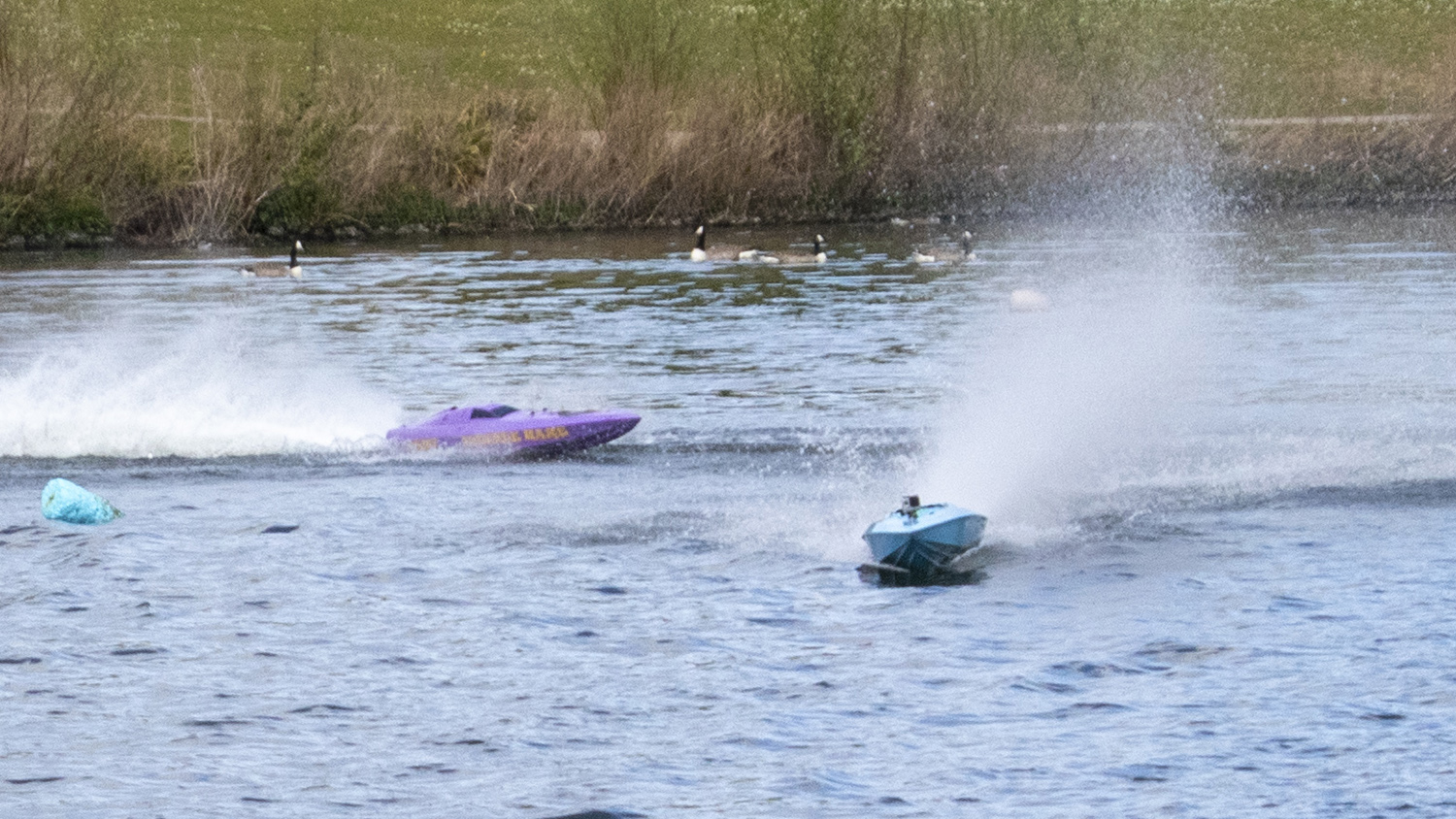
The majority of engines are petrol these days due to their ease of setup and use, as well as their cost effectiveness. Whilst a 25 to 50cc, 5hp plus rocket screaming round the lake is quite the spectacle, they’re not for beginners. There are still a few IC powered scale boats within the club which put in an occasional appearance. Some of these will use diesel engines, which are no longer readily available due to the decrease in popularity, they can be harder to set up, with very expensive fuel and less power than glow engines.
Virtually all IC engine boats are hand-built from components available online from specialist suppliers, with many people making their own hardware. There are a few Ready To Run (RTR) boats available with petrol engines, but they are large and fast and not advisable for beginners, as well as typically being of poor design and build quality. If fast IC boats interest you, come to Fairlands Valley on a Sunday morning, see some boats and talk to the drivers, we’ll be more than happy to help with any questions you may have and will help anyone every step of the way to getting an IC boat running.
There are plenty of I.C. videos on our YouTube channel - Link at foot of page.
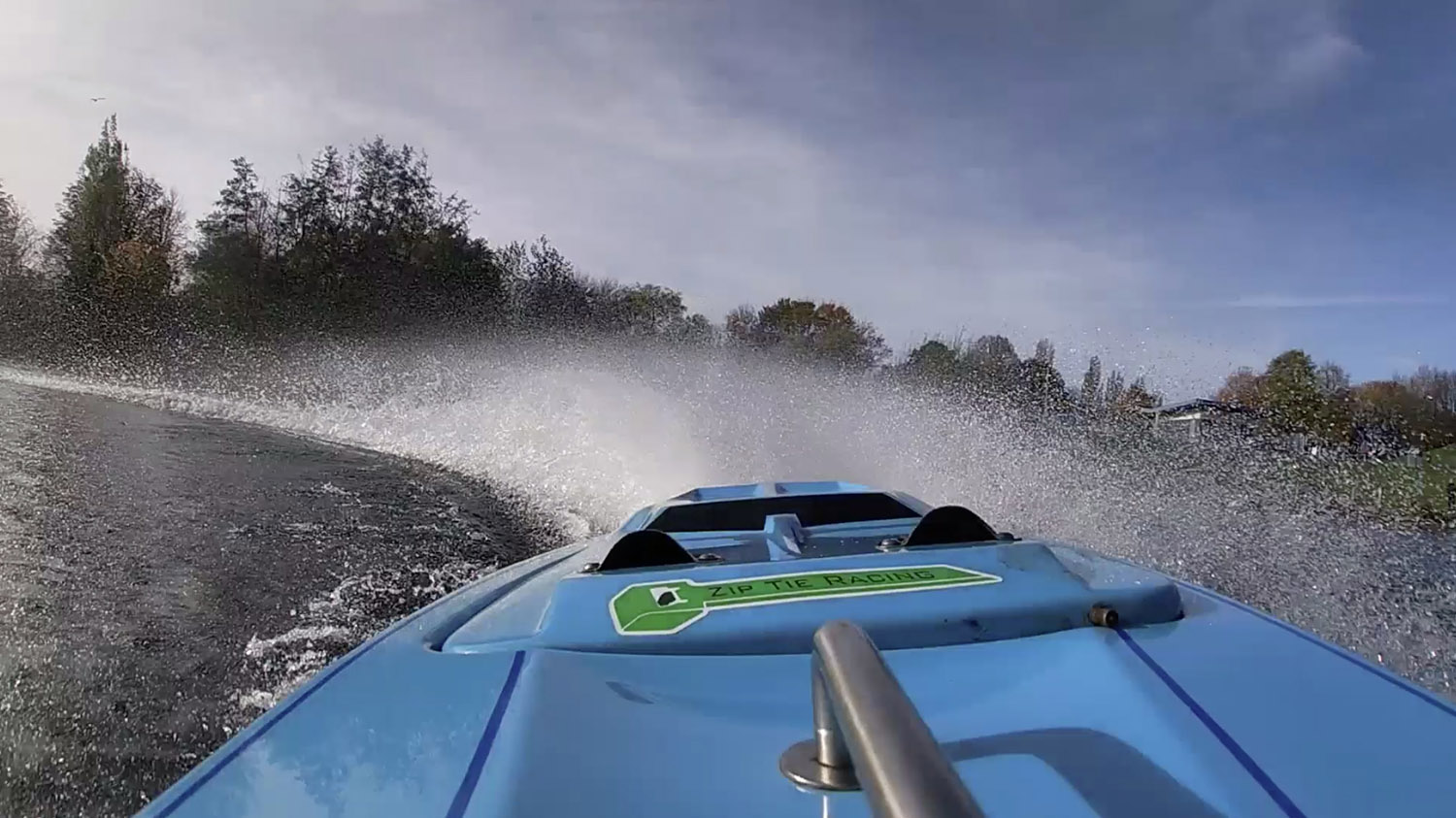
IC engines provide a method of running fast model boats for a relatively long time, up to 30 mins. They do, however, need a lot of additional equipment: Electric starter and battery, fuel and fuel pump, small hand tools, a sturdy boat stand, glow plug heater and after run engine oil. All of these do not have to be immediate purchases when starting out as our members are always happy to get a boat going for someone else, though it’s good to have your own set of equipment eventually. At Stevenage we keep to the highest standards of model boat safety, this includes making sure all petrol models are fitted with spark failsafes, all glow and diesel models are fitted with radio failsafes and we regularly look over each other’s models to ensure that they are as safe to ourselves and the public as they can be. Most societies dictate engine noise must not exceed 80db at 10 metres, this is a law that we adhere to at Stevenage and have the equipment to test.
Whilst most of what we do at Stevenage with IC boats is just for fun, some of our members travel the country (and one internationally) to race competitively. In the UK there are three main organisations for competitive model boat racing, detailed below.
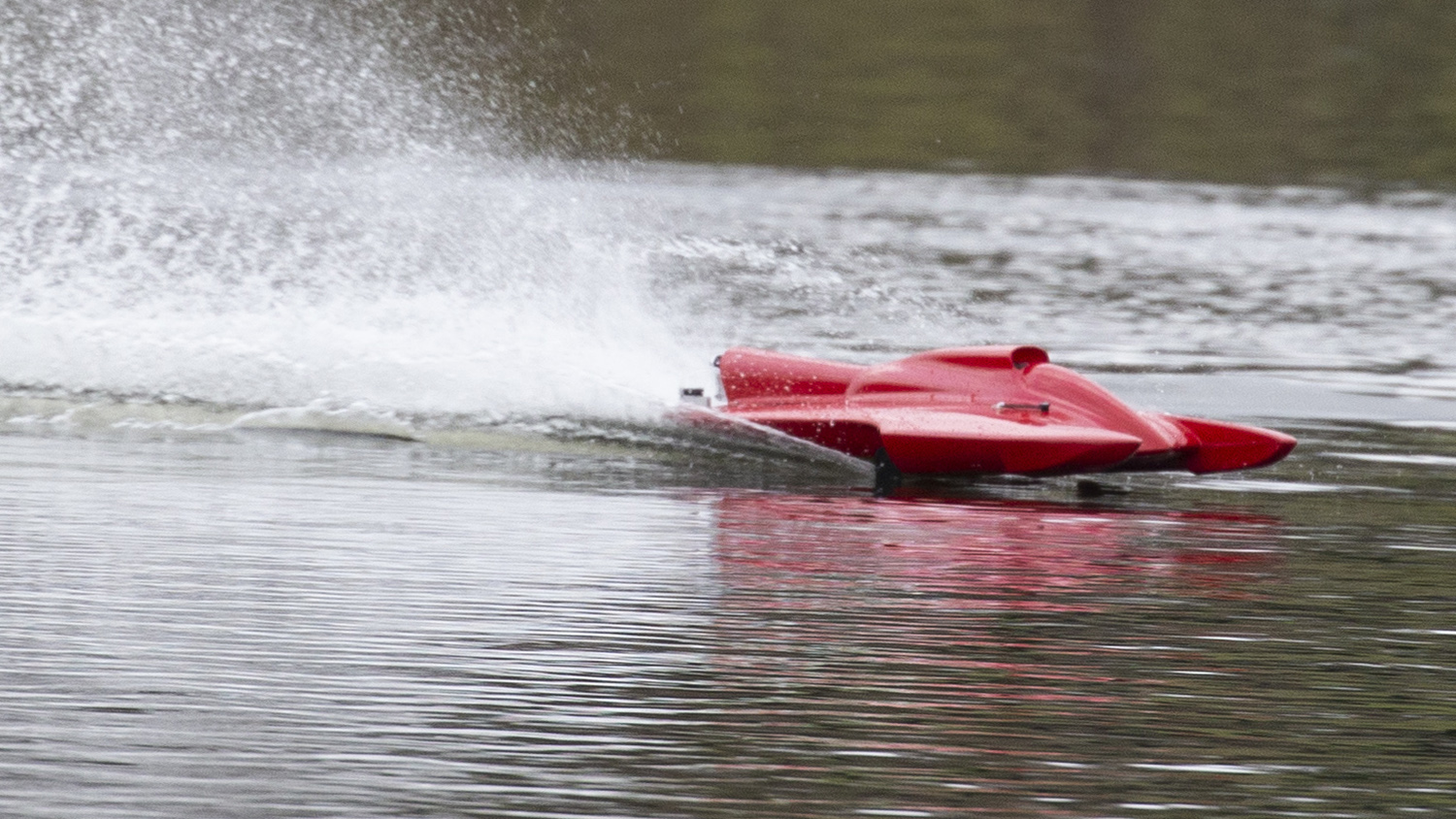
By far the largest of the racing scenes in the UK, incorporating both national races and iMBRA, the international boat racing body: FSR-V – Mainly known as multi as this was the first form of racing multiple boats in the UK, these boats race in an M shaped course and are designed to maintain their high speeds through very tight left hand turns in endurance races of 30 minutes, at speeds around 50mph. Characterised by their very low, submerged drive hulls, they run geared glow engines in 3.5, 7.5 and 15cc, and petrol engines in 27 and 35cc. FSR-H – Outrigger hydroplanes capable of race speeds towards 100mph, racing 4 minute heats in a clockwise oval. Typically built from thin plywood, these boats weigh very little and the stresses involved on the boat are immense. Driving them is not for the feint of heart! FSR-O – Fast monohulls typically with shallow hulls, again running in short 8 minute races in an oval course.
Offshore Model Boat Enthusiasts (OMBE)
Formed in 2019, the OMBE aims to promote informal racing, without a championship and with very few rules, with the pure aim of having a fun day with your friends. OMBE cater to both IC and electric boating enthhusiasts. Most of their races have been held so far in the sea around Cornwall and Dorset, with one lake race at the West Country Waterpark near Bristol. They hold two chase boat races on the sea per year, one of which can be seen at the youtube video below:
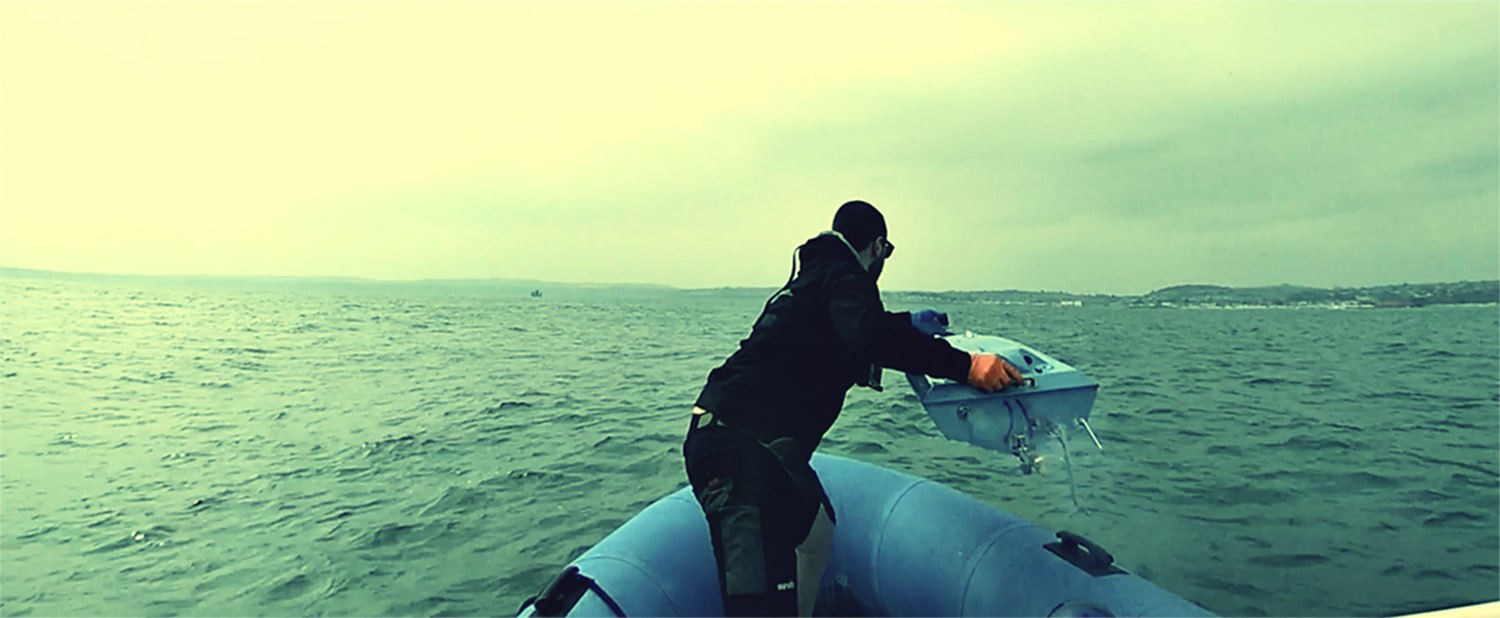
OMRA https://omra.co.uk
The Offshore Model Racing Association, as the name suggests, was formed to race model power boats on the sea. The Association was formed during 1971 and celebrated its 50th year during 2021! The racing sometimes involves the use of Chase Boats that carry the driver and sometimes races are held in harbours where the driver will stand in an elevated position on the quay side. OMRA boats tend to be somewhat larger than most boats and boats to cope with the rougher water conditions occasionally experienced. The races are generally held over a 20 minute duration with a 2 minute mill time. The vast majority of boats now tend to use 2 stroke petrol engines however a few people still enter using traditional glow ‘Nitro’ powered engines, and these are catered for in the A and B classes. Here's a short video on YouTube about OMRA. https://youtu.be/WotqxDjoSTI
BMPRS https://bmprs.org
The British Model Power Powerboat Racing Society was formed about 10 years ago to promote an annual series of races on inland lakes. A few club members have competed in this series in recent years. BMPRS run a range of classes, boats tend to be similar to that which OMRA races.
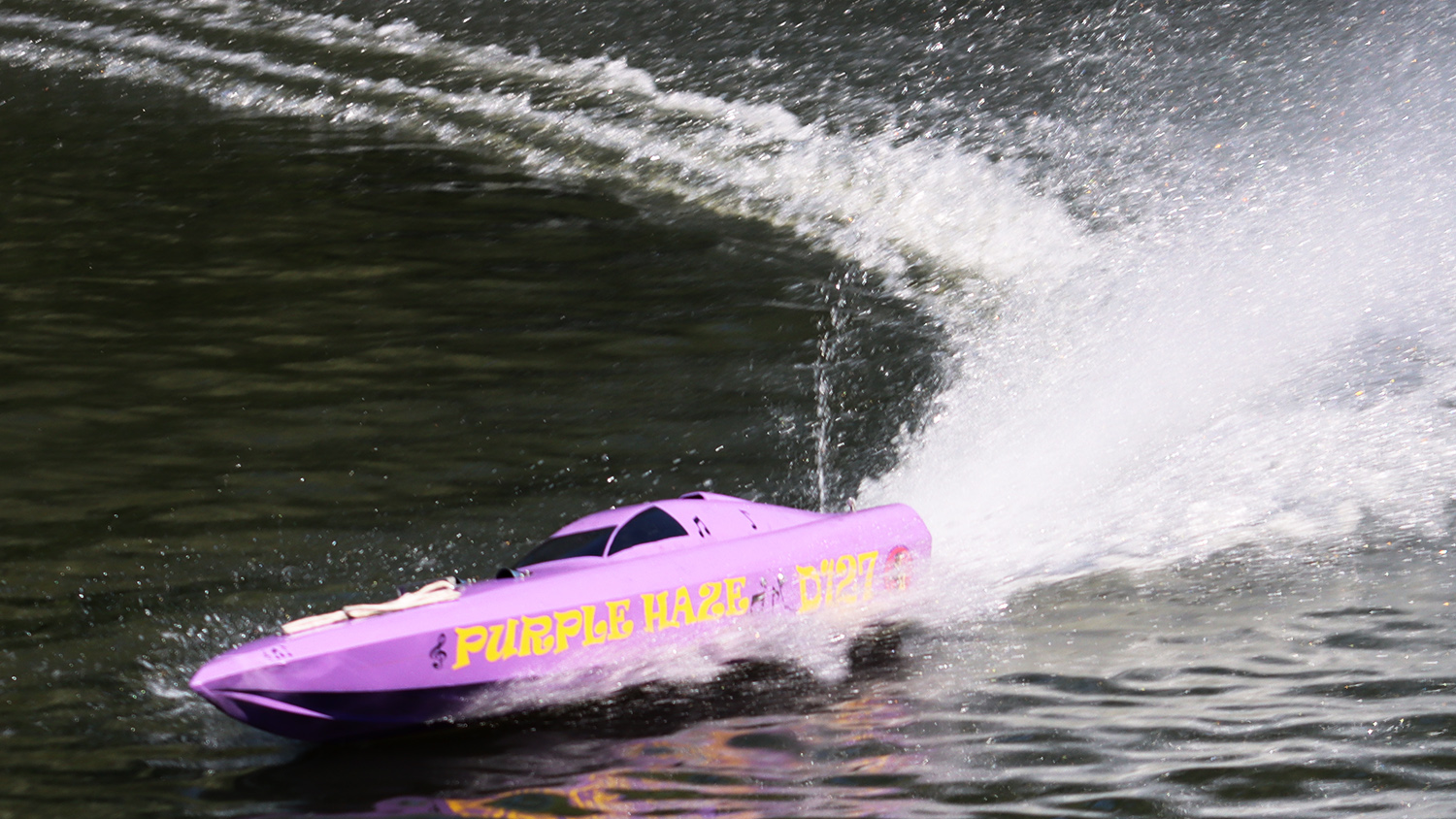
We have too many images to put them all on this page... head over to the Gallery where you will find some nice pix.
YouTube Video Channel...
Don't forget to check out our channel on YouTube to see some of our boats in action... we usually have a new video every couple of weeks.
